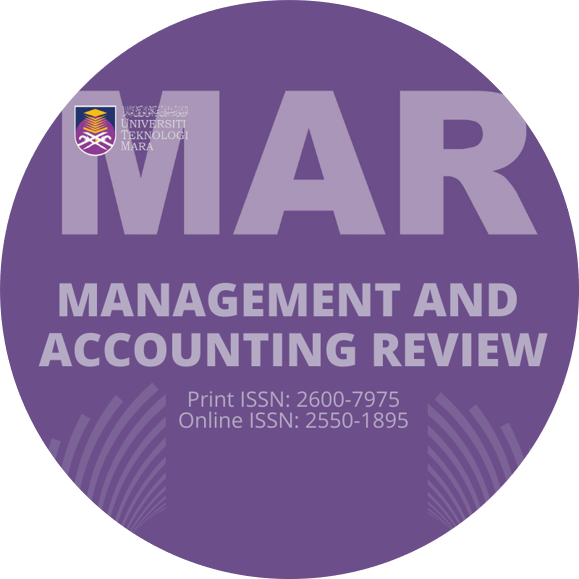Volume 24 No. 1, April 2025
MANAGEMENT AND ACCOUNTING REVIEW, VOLUME 24 NO. 1, APRIL 2025
https://doi.org/10.24191/MAR.V24i01-17
BEHAVIOURAL INTENTION TO USE ARTIFICIAL INTELLIGENCE (AI) AMONG ACCOUNTING STUDENTS: EVALUATING THE EFFECT OF TECHNOLOGY READINESS
Jyashree Krishnanraw and Kamisah Ismail♣
Faculty of Business and Economics, Universiti Malaya, Kuala Lumpur, Malaysia
ABSTRACT
This research examined the factors influencing Malaysian accounting students’ use of Artificial Intelligence (AI) through an extended Technology Acceptance Model. Amid the growing integration of AI in Asia’s accounting sector, this study examined the perceptions and intentions of future professionals toward its use. A cross-sectional, survey-based methodology was employed, targeting third and fourth-year undergraduate students from four prominent Malaysian universities, both public and private. The survey evaluated technology readiness aspects, including optimism, innovativeness, discomfort, and insecurity, alongside superior functionality and perceived usefulness. Data from 136 respondents were analysed using Smart PLS 4, assessing the direct and indirect influences on the behavioural intention to use AI. The results revealed that optimism and innovativeness positively impacted perceptions of AI's functionality, with optimism additionally affecting perceived usefulness. However, these factors did not significantly enhance the intention to use AI. Notably, superior functionality acted as a crucial intermediary, linking positive perceptions with usage intentions. In contrast, discomfort adversely affected this intention, highlighting it as a significant barrier to AI engagement. The findings highlight the need for curricular updates in accounting education to mitigate technological discomfort and emphasize critical areas for enhanced AI integration and engagement, aligning with technological progress and the profession's changing demands.
Keywords: Artificial Intelligence, Accounting Education, Technology Acceptance Model, Behavioural Intention, Technology Readiness Dimensions
♣ Corresponding Author: Dr. Kamisah Ismail; Department of Accounting, Faculty of Business and Economics, Universiti Malaya, 50603 Kuala Lumpur, Malaysia; Email: kamisah.ismail@um.edu.my; Tel: +603-79673810
ARTICLE INFO
Article History:
Received: 13 February 2024
Accepted: 14 July 2024
Available online: 1 April 2025





